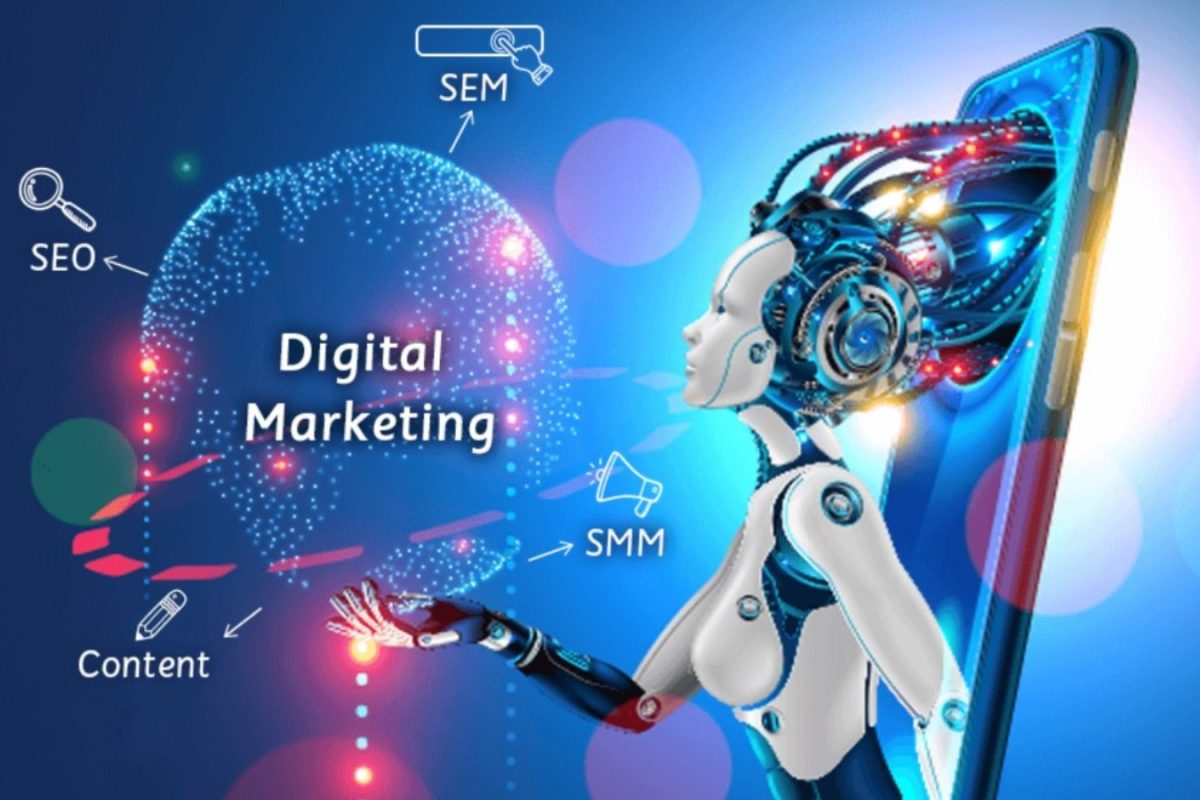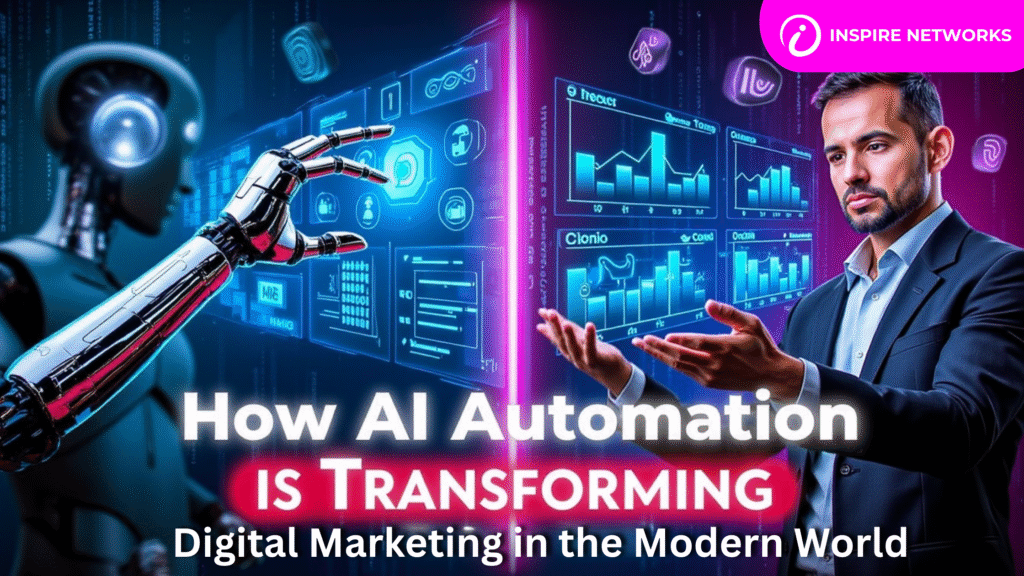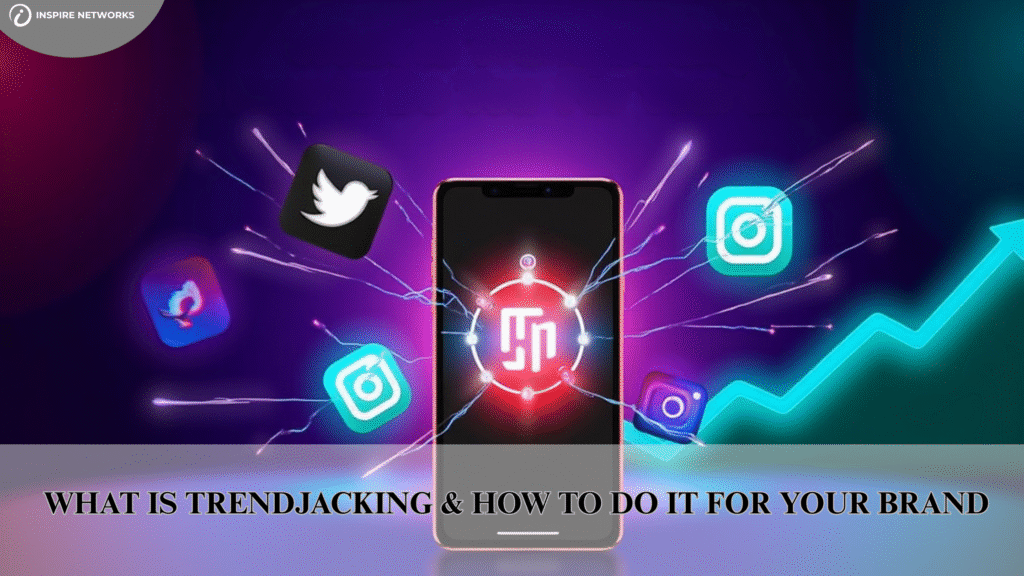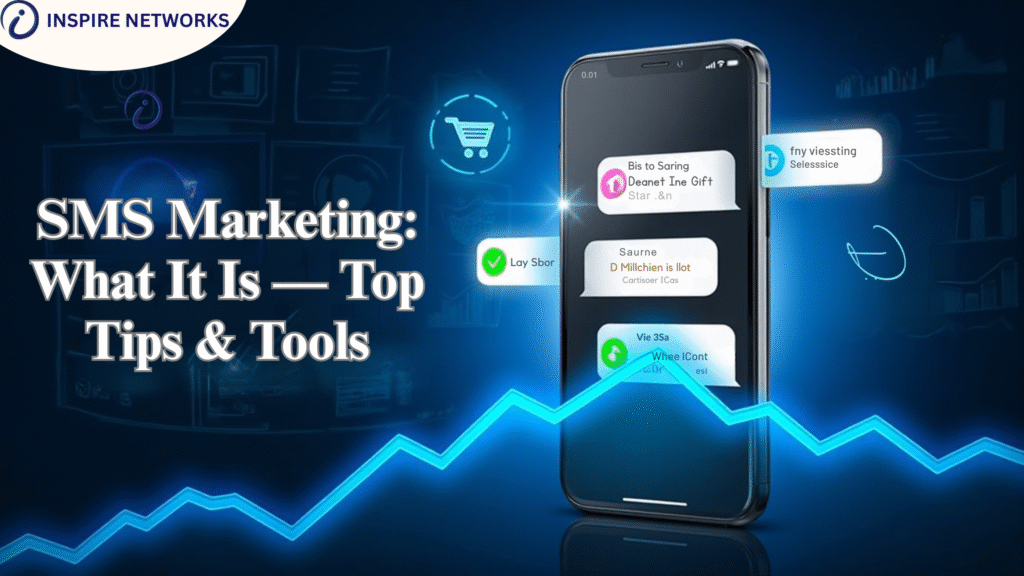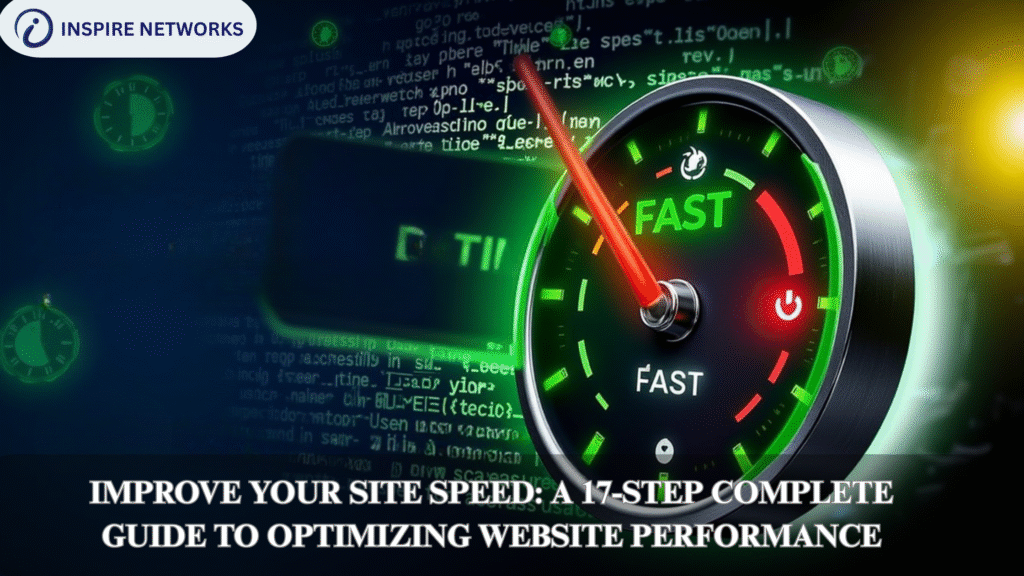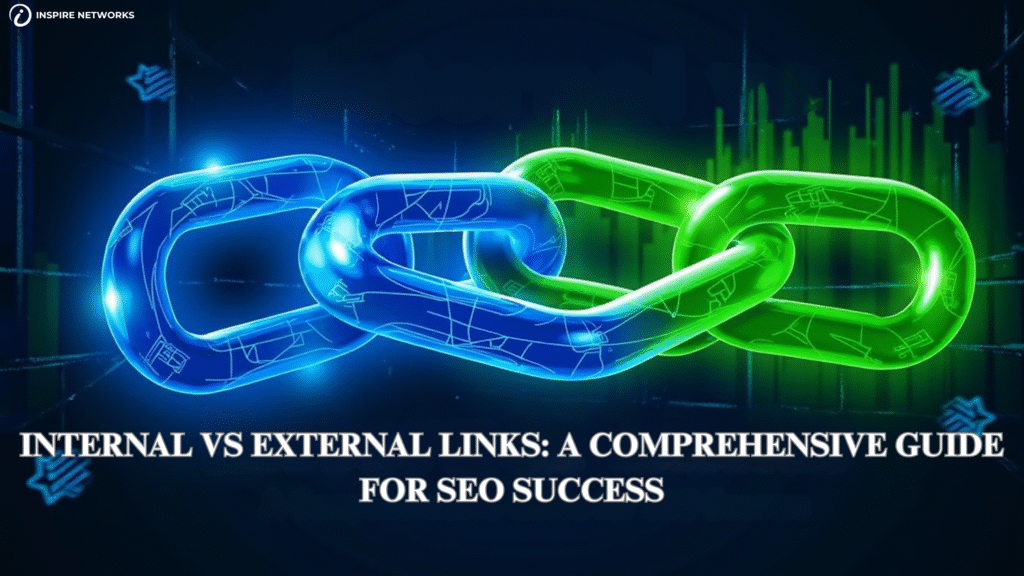Artificial intelligence (AI) has rapidly become an indispensable tool for digital marketers, because of its capacity to swiftly and precisely analyze vast volumes of data. In broad terms, AI technology holds the promise of transforming digital marketing through enhancements in personalization, efficiency, and overall impact.
As AI continues to advance, we can anticipate the emergence of new applications in the realm of digital advertising. This article explores 10 ways in which AI technology is currently influencing and shaping the landscape of digital marketing.
1. AI-Enhanced Personalization:
Utilizing AI algorithms, content can be customized based on customer browsing patterns, demographics, and preferences. This empowers marketers to personalize content, offers, and advertisements, ultimately enhancing the user experience. By leveraging AI, businesses can craft more precisely targeted and impactful marketing campaigns, leading to increased conversion rates.
AI contributes to the refinement of digital marketing personalization through the following means:
- Marketers can employ AI to send personalized offers and product recommendations by scrutinizing customers’ past behaviors.
- AI enables companies to monitor real-time browsing habits, facilitating the prompt recommendation of relevant products.
- AI-driven chatbots can swiftly suggest products and address inquiries.
- Analysis of customer viewing patterns allows AI to recommend tailored videos or visual content.
- By scrutinizing social media, product reviews, and surveys, AI aids brands in achieving a higher level of personalization.
2. AI-powered Chatbots:
AI-powered chatbots play a pivotal role in enhancing digital marketing initiatives by delivering personalized customer support, gathering data for lead generation and analysis, and elevating overall engagement and customer satisfaction.
The integration of AI-powered chatbots into digital marketing campaigns yields the following advantages:
- Enhancing customer service: Chatbots provide round-the-clock support, reducing the workload on support teams, and thereby elevating satisfaction and fostering brand loyalty.
- Boosting engagement: Chatbots engage in meaningful conversations with users, thereby increasing the time spent on websites or social media platforms.
- Personalized recommendations: AI-driven chatbots can recommend products, provide personalized suggestions, and present discounts or promotions based on user behavior and preferences.
- Lead generation: Chatbots efficiently collect email addresses and phone numbers, contributing to lead generation efforts in marketing.
- Data analysis for campaign improvement: By analyzing user data, chatbots uncover trends and insights that can be utilized to refine marketing campaigns and target users more effectively.
3. Predictive Analytics:
AI algorithms play a crucial role in providing marketers with insights into customer behavior. By leveraging machine learning algorithms, extensive data from sources such as social media, website analytics, and customer feedback can be analyzed. This analysis enables the prediction of customer behavior and the identification of trends, including product purchases and churn. Furthermore, it aids in enhancing products and services, shaping marketing strategies, and optimizing marketing campaigns.
The application of AI-powered predictive analytics empowers digital marketers to make more informed, data-driven decisions through the following means:
- Targeted advertising: Predictive analytics identifies patterns in user data, predicting which users are likely to be interested in a product or service. This information enhances advertising targeting and improves conversion rates.
- Personalized content: Predictive analytics analyzes user behavior and preferences, facilitating the creation of engaging and brand-loyal content.
- Customer retention: Predictive analytics assists in retaining high-churn customers, enabling the development of more effective targeted retention campaigns.
- Product development: Predictive analytics identifies trends and insights in user data, contributing to the improvement of product development and user experience.
- Forecasting: By utilizing machine learning algorithms, predictive analytics predicts customer behavior and trends, optimizing marketing strategies and resource allocation.
- Customer satisfaction: AI-powered predictive analytics enhances marketers’ understanding of user behavior and preferences, leading to improved customer satisfaction and loyalty.
4. AI-Generated Content:
AI technology provides a valuable resource for marketers, saving time, enhancing content quality, and improving campaign performance based on data and user preferences. AI-powered content creation tools are adept at generating more engaging and relevant blog and social media content.
Digital marketing campaigns can leverage AI-powered content generation tools in the following ways:
- Time and cost savings: AI-powered content creation tools efficiently write product descriptions, blog posts, and social media content, resulting in time and cost efficiencies.
- Customized content: AI-powered tools can personalize responses based on user behavior, enhancing user interactions, particularly through chatbots.
- Performance optimization: AI-powered tools analyze performance data to determine which headlines or images garner the most clicks, allowing for real-time adjustments to enhance content effectiveness.
- Professional editing: AI-powered tools can edit and proofread content for grammar and spelling errors, ensuring a polished and professional presentation.
5. AI-Enhanced Targeted Ads:
AI algorithms have the ability to recognize patterns in user data, predicting which users are likely to engage with specific ads. This not only provides deeper insights into customer behavior but also enables the personalization of messages, prediction of future behavior, and real-time optimization of campaigns. In essence, businesses can effectively target their advertising efforts through AI-driven insights.
Ways in which AI improves advertising targeting include:
- Identifying patterns and trends in large datasets, such as customer behavior, purchasing habits, and demographics. This analysis aids companies in selecting the most suitable advertising audience.
- AI-based personalization tailors advertising to individual customer preferences and behavior, enhancing the impact of messages.
- Predictive modeling algorithms powered by AI can forecast customer behavior based on historical data, allowing businesses to target advertising toward the most responsive audience.
- Real-time optimization technology, driven by AI, monitors the performance of advertising campaigns in real-time, making dynamic adjustments to improve effectiveness. For example, AI can modify targeting or messaging based on real-time campaign performance.
6. AI-Driven Voice Search:
Voice-activated digital assistants like Cortana and Alexa are transforming how people seek information, and optimizing website content for voice search is crucial for increasing visibility and customer acquisition.
AI-based voice search technology supports digital marketing campaigns through:
- Content optimization for voice search, with AI tools helping businesses understand how people use voice search and the keywords and phrases they employ.
- Creation of conversational chatbots by AI, facilitating quick and easy responses to user queries, utilized for customer support, FAQs, and sales funnel guidance, often delivered by digital assistants like Siri, Alexa, and Google Assistant.
- Analysis of voice search data by AI-based tools, providing insights into user behavior on websites and products. This data aids in identifying trends, optimizing content, and enhancing digital marketing strategies.
7. AI-Enhanced Image/Video Recognition:
AI is proficient in identifying objects, people, and other elements in images and videos, offering automated tagging, personalization, search functionality, visual content analysis, and creative inspiration.
Ways in which AI-powered image and video recognition algorithms contribute to businesses creating more relevant and engaging visual content include:
- Automated tagging by AI algorithms, streamlining the process of adding relevant keywords to images and videos, facilitating easier search, categorization, and content creation.
- Improved search accuracy through AI-powered image and video recognition algorithms, enabling companies to quickly find visual content for their digital marketing campaigns.
- Visual content analysis by AI algorithms, identifying patterns and trends in visual content to aid businesses in creating higher-quality visual materials.
- Creative inspiration generated by AI algorithms, suggesting new visual content based on trends and user preferences, thereby assisting companies in crafting more appealing visual content.
8. AI-Powered Fraud Detection:
AI algorithms play a crucial role in identifying anomalies, employing predictive modeling, analyzing text-based data, monitoring real-time activities, and assigning fraud scores to assist businesses in recognizing and preventing fraudulent activities.
AI algorithms effectively detect and prevent fraud patterns, such as click fraud and account hacking, through the following means:
- Anomalies detection: AI algorithms identify irregularities, such as multiple clicks from the same IP address or sudden spikes in account activity.
- Predictive modeling: Utilizing machine learning, AI algorithms recognize fraud patterns related to IP addresses, locations, and device types, predicting and preventing fraudulent activities.
- Natural language processing: AI algorithms analyze chat logs and email conversations to identify fraud-related keywords and phrases.
- Real-time monitoring: Businesses can respond to fraudulent activity in real-time as AI algorithms alert account owners when an account is accessed from a new location.
- Fraud scoring: AI algorithms assign scores to transactions or activities based on the likelihood of fraud, allowing businesses to prioritize responses and focus resources on high-risk transactions.
9. AI-Driven A/B Testing:
AI-powered A/B testing tools facilitate companies in testing and optimizing marketing campaigns for enhanced performance and faster goal achievement.
AI-powered tools automate A/B testing through the following methods:
- Test setup: AI algorithms randomly distribute traffic to different webpage or ad variations, streamlining the setup of A/B tests and saving time and money.
- Test analysis: AI algorithms employ statistical models to determine the performance of variations in A/B tests.
- Test optimization: AI algorithms use machine learning to identify A/B test patterns and optimize future tests, recommending specific colors or fonts based on audience segmentation.
- Personalization: AI-powered A/B testing tools personalize test variations based on user data, enabling businesses to test different variations for various audience segments and deliver more relevant experiences.
- Real-time testing: AI-powered A/B testing tools enable quick iteration and optimization of websites or ads based on user feedback, leading to increased conversions and accelerated marketing goals.
10. AI-Enhanced Marketing Automation:
AI-powered marketing automation tools automate tasks related to email, social media, and data analysis, allowing businesses to concentrate on strategic and creative endeavors to enhance sales, marketing performance, and efficiency.
Digital marketing campaigns benefit from AI-powered marketing automation tools in the following ways:
- Personalized content: AI algorithms personalize marketing content based on user data and behavior, improving conversion rates by providing more relevant and engaging experiences.
- Predictive analytics: AI algorithms analyze user data using machine learning to predict which users are likely to convert or take specific actions, enabling businesses to focus marketing efforts more effectively.
- Campaign optimization: AI campaign optimization tools adjust digital marketing campaigns in real-time based on user behavior and feedback, automatically tweaking paid search ad bids or marketing email content.
- Lead scoring: AI lead scoring algorithms assign scores to each lead based on their likelihood to convert, allowing businesses to prioritize follow-up and allocate resources to the most promising leads.
- Customer insights: By analyzing customer data and behavior, AI algorithms provide insights into preferences, interests, and actions, enabling companies to target advertising more effectively and gain a deeper understanding of their clientele.

